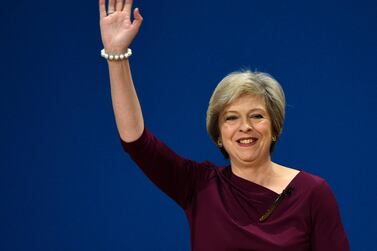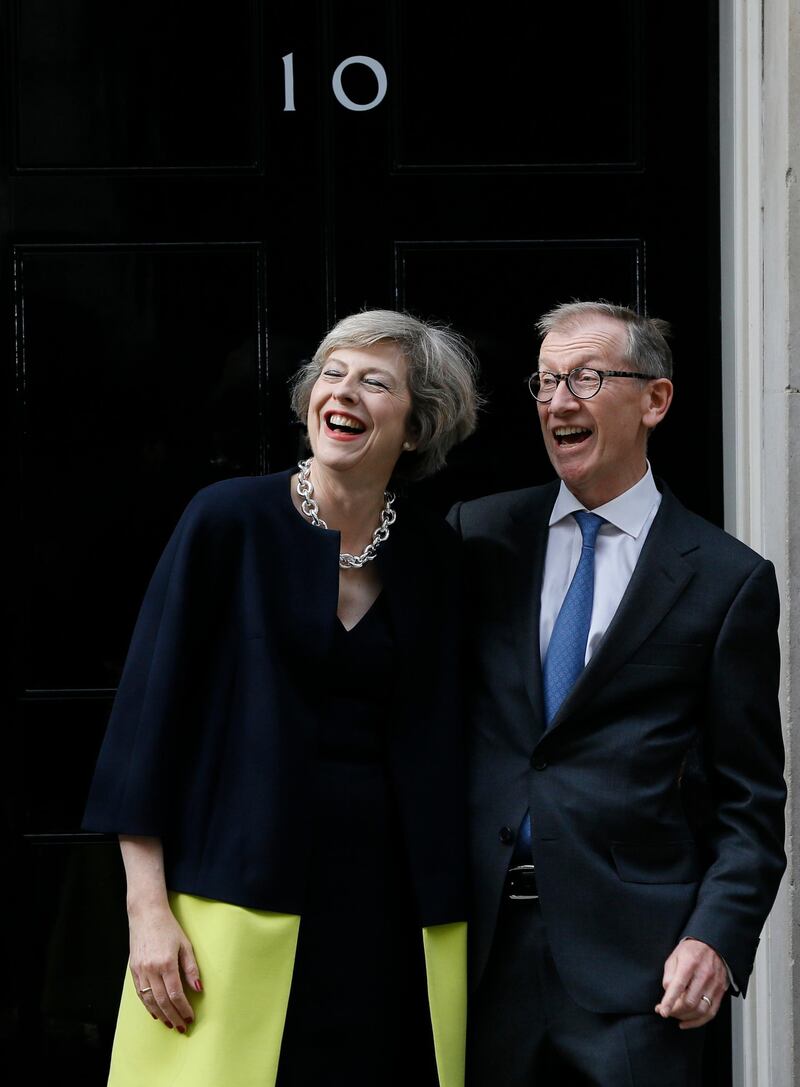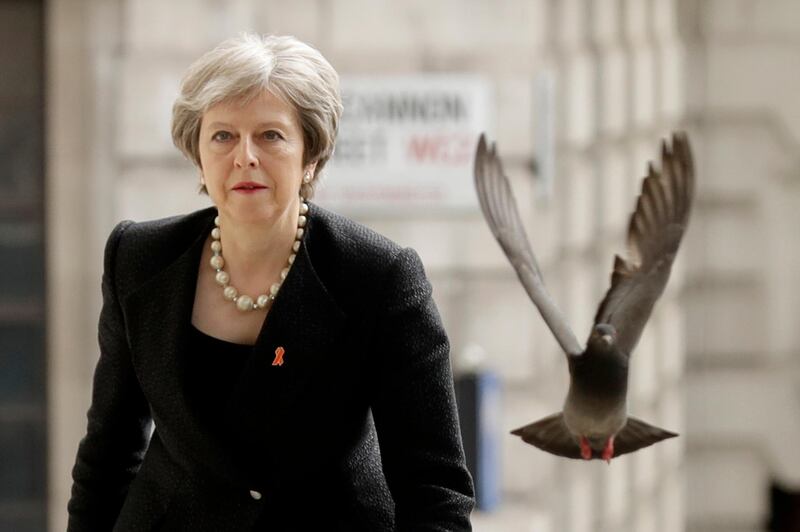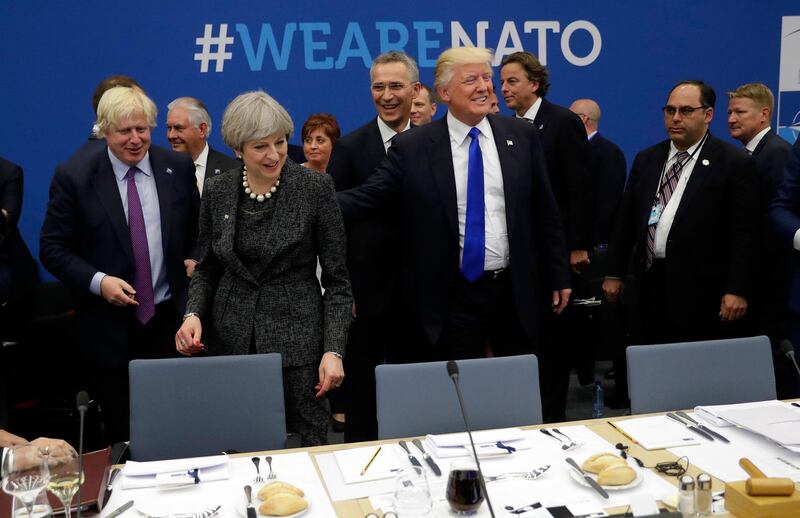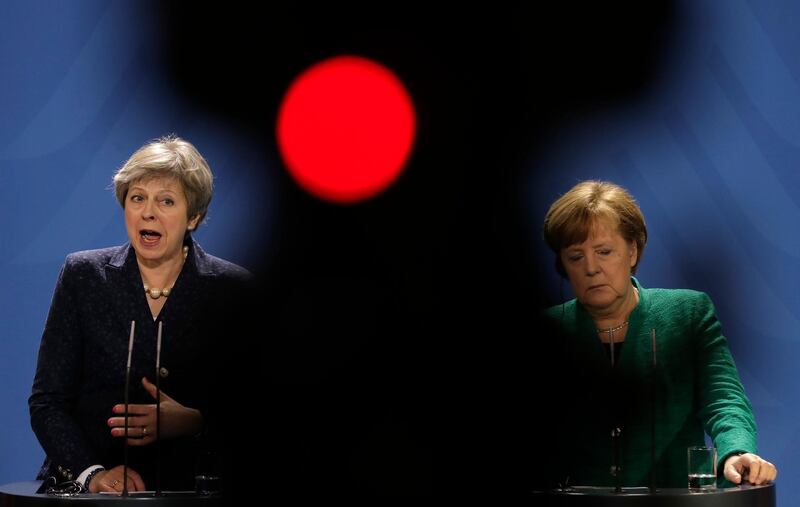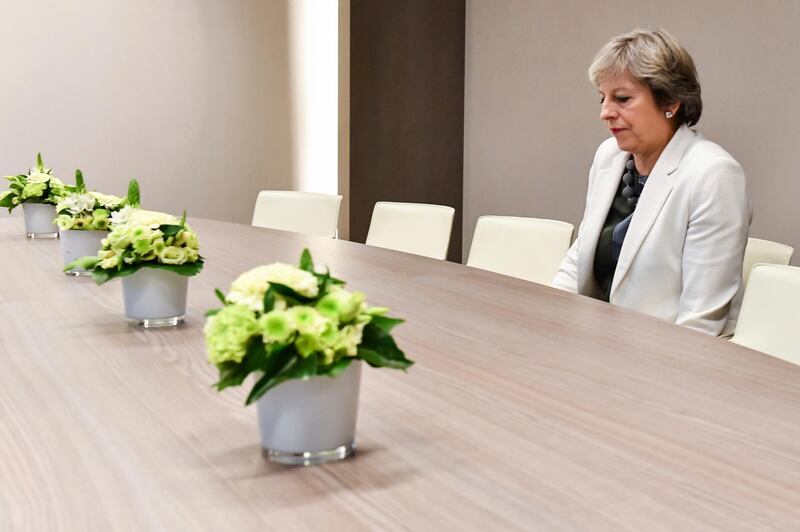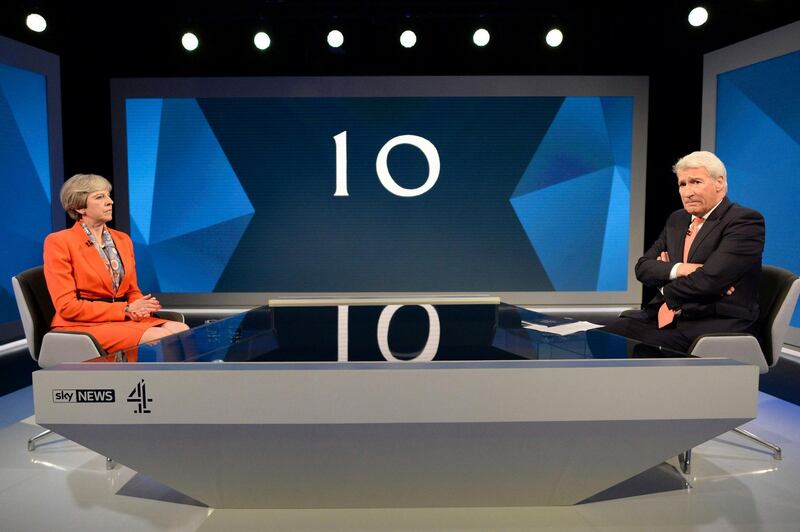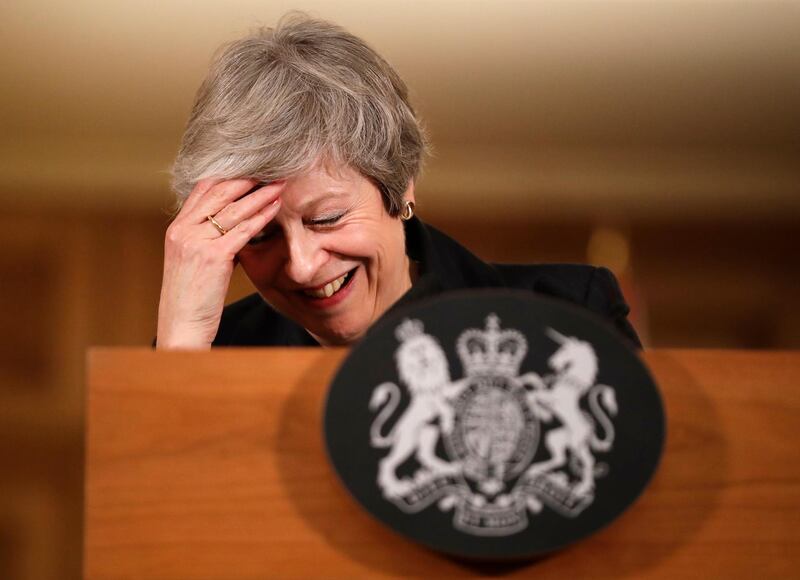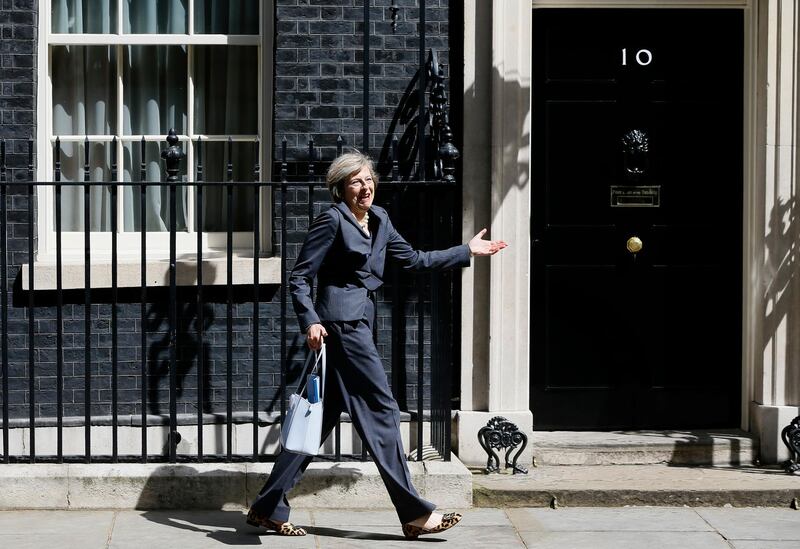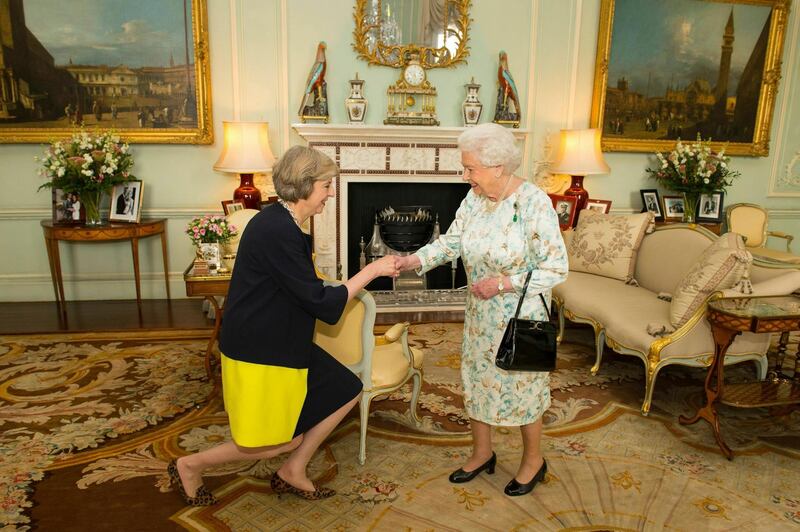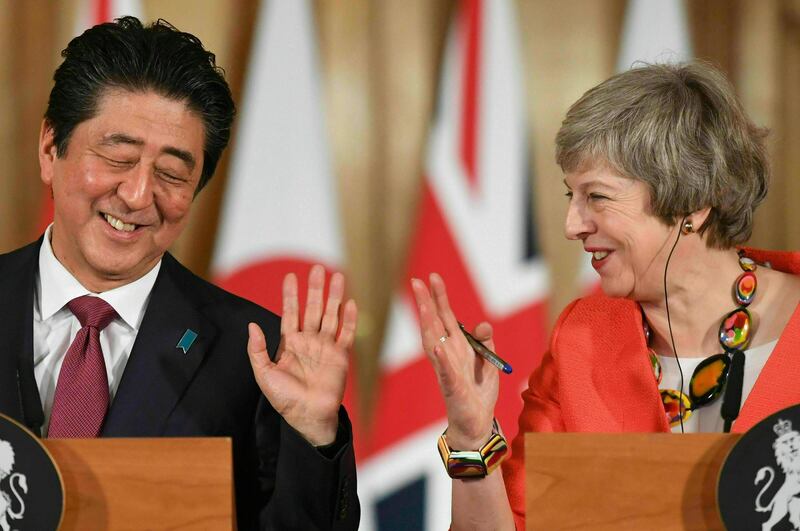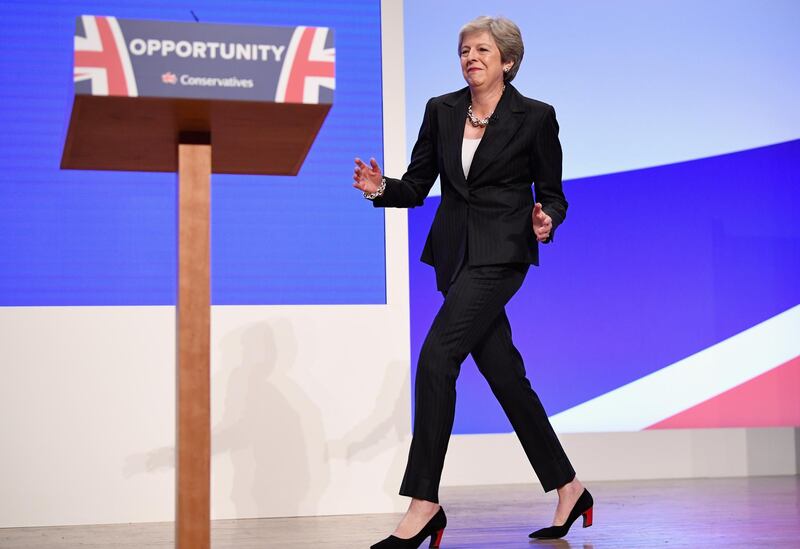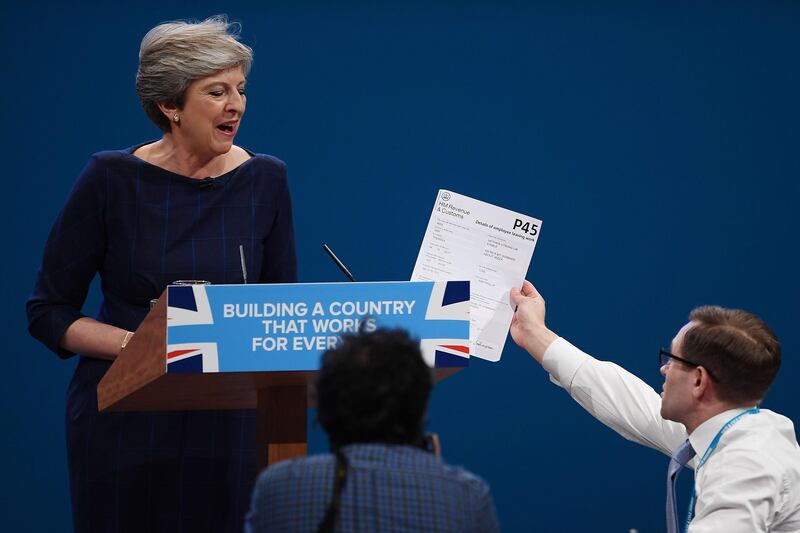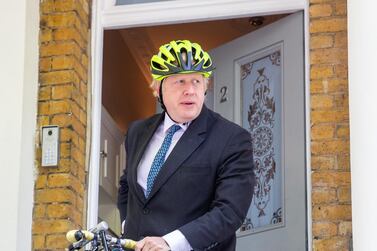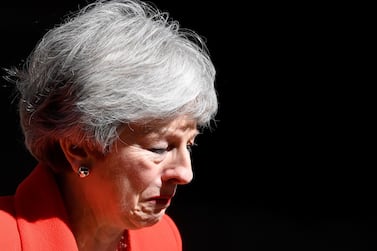Theresa May has announced she will be stepping down as Conservative leader on June 7, triggering a party contest to choose the new prime minister of the United Kingdom.
"It is and will always remain a matter of deep regret to me that I have not been able to deliver Brexit," Mrs May said during her resignation statement outside No 10 Downing Street on Friday.
Mrs May became emotional at the end of her short speech, holding back tears as she said it was an honour to serve as prime minister.
"I will shortly leave the job that has been the honour of my life to hold. The second female prime minister but certainly not the last. I do so with no ill will but with enormous and enduring gratitude to have had the opportunity to serve the country I love," she said.
An election to choose her replacement as prime minister will begin the week after she steps down as Conservative party leader.
Party bosses hope to have a new leader in place by the end of July. The result will shape the direction of Brexit and all options - from leaving with no deal to cancelling the divorce - are now back on the table.
Reacting to the news, opposition Labour leader Jeremy Corbyn said Mrs May's replacement should call a general election.
Theresa May is right to resign. She's now accepted what the country's known for months: she can't govern, and nor can her divided and disintegrating party.
— Jeremy Corbyn (@jeremycorbyn) May 24, 2019
Whoever becomes the new Tory leader must let the people decide our country’s future, through an immediate General Election.
Mrs May’s decision heralds the end of a turbulent, three-year premiership that’s been marked by bitter divisions within her party and across Britain over how to leave the European Union.
The UK was due to withdraw from the EU on March 29. But Mrs May’s inability to get the divorce deal she negotiated in Brussels approved in Britain’s deadlocked Parliament has forced her to delay exit day until October.
It will be for Mrs May's successor to define the course of Brexit. The current favourite is pro-Leave campaigner Boris Johnson, the UK’s former Foreign Secretary, who favours a quick, sharp split the EU.
Mr Johnson thanked Mrs May for her leadership on Twitter adding that it was time to "come together and deliver Brexit".
A very dignified statement from @theresa_may. Thank you for your stoical service to our country and the Conservative Party. It is now time to follow her urgings: to come together and deliver Brexit.
— Boris Johnson (@BorisJohnson) May 24, 2019
Another potential leadership candidate Michael Gove, the current environment minister, also paid tribute to the prime minister on Twitter.
A moving speech from a Prime Minister who deserves our respect and gratitude.
— Michael Gove (@michaelgove) May 24, 2019
Thank you @theresa_may
Helen Grant resigned from her government role as Conservative vice chairman for Communities on Friday to support former Brexit secretary Dominic Raab's leadership bid.
Mr Raab, who quit his government post in protest at Mrs May's Brexit deal, is a Brexiter who has promised to slash income tax.
Dignified as ever, @theresa_may showed her integrity. She remains a dedicated public servant, patriot and loyal Conservative. https://t.co/2YjBp0x8HM
— Dominic Raab (@DominicRaab) May 24, 2019
The pound inched up after Mrs May announced her leave date, following 14 days of consecutive losses against the euro.
Mrs May had little choice but to set a date for her departure to avoid the humiliation of being hounded from office.
Members of her own party had become angry with her handling of Brexit and fearful the party will suffer a crushing defeat in the European Parliament elections at the hands of Nigel Farage’s Brexit Party.
Conservative officials were considering changing the party’s rules to hold a vote to force Mrs May out within days. Instead she has decided to go voluntarily, after President Donald Trump’s state visit to Britain, one of the people said. She will remain as a caretaker prime minister while her successor is chosen in a contest that could take six weeks.
The final crisis of Mrs May’s beleaguered leadership began on Tuesday when she announced her last-gasp plan to persuade members of Parliament to back the Brexit deal she spent two years negotiating with the EU. It was instantly rejected, leaving Britain’s divorce from the bloc in disarray and May with nowhere to go.
Pro-Brexit Conservatives, including ministers in her Cabinet, spent much of Wednesday plotting how to kill off Mrs May’s plan. Their main target was to stamp on her idea of letting Parliament vote to allow a second referendum to ratify the terms of the UK’s exit.
On Wednesday night, high-profile minister Andrea Leadsom quit May’s Cabinet in protest at the plans. Other ministers - including Home Secretary Sajid Javid and Foreign Secretary Jeremy Hunt - made it clear they didn’t support Mrs May’s proposed Withdrawal Agreement Bill.
That draft law - which includes the referendum promise - was due to be put to a vote in the House of Commons in the first week of June but has now been put on ice.
Earlier on Thursday, Mrs May seemed to be digging in, with her spokesman insisting she hadn’t given up on delivering Brexit. Government Whip Mark Spencer told parliament in the morning that Mrs May still planned to publish the Withdrawal Bill in the first week of June. As Thursday went on, it became clear her position couldn’t last.
“Politics is a nasty sometimes brutal, ghastly business," said Iain Duncan Smith, a Brexiter and former Conservative leader. "She has no confidence, not just within her party but in the cabinet too.”
